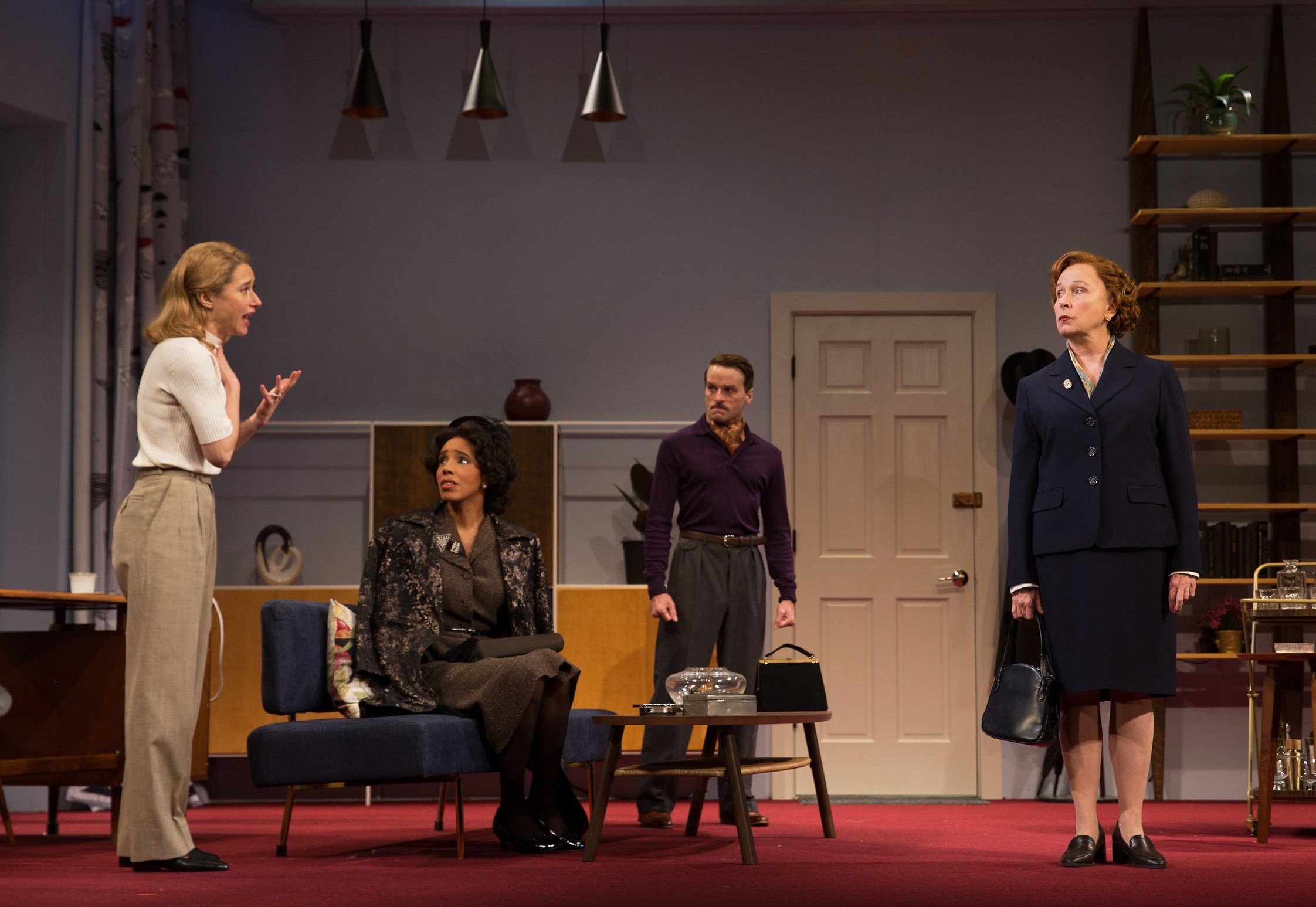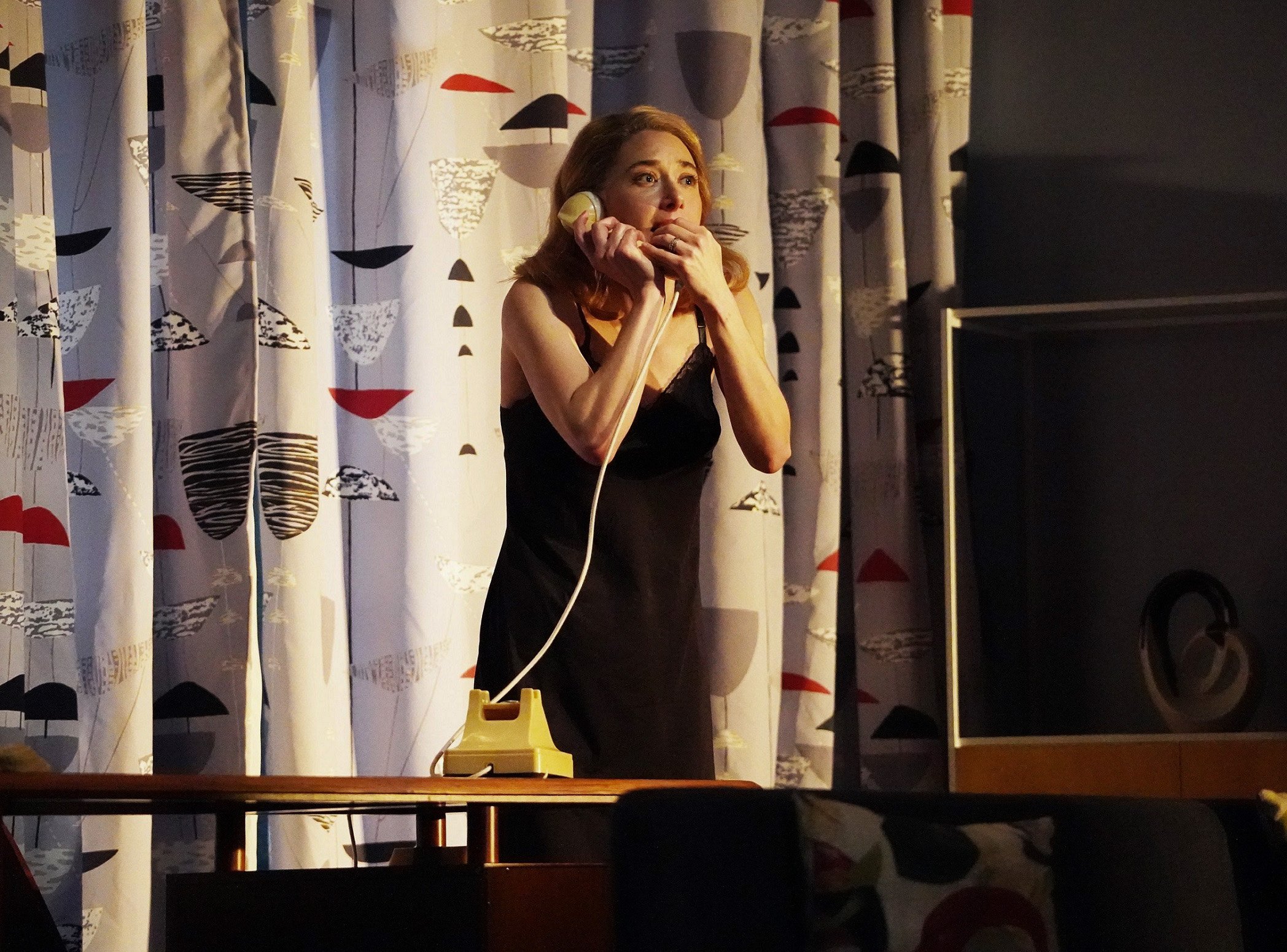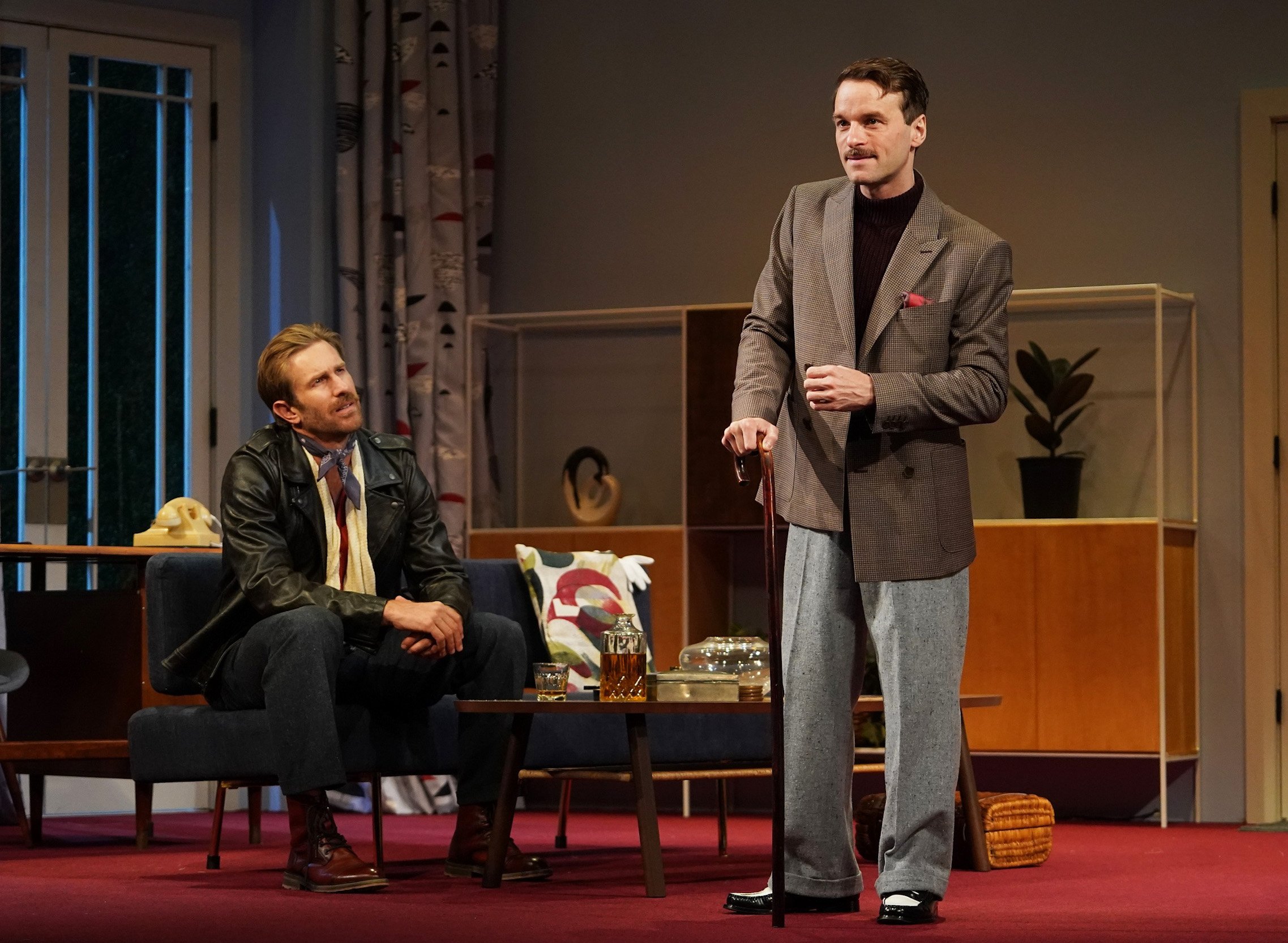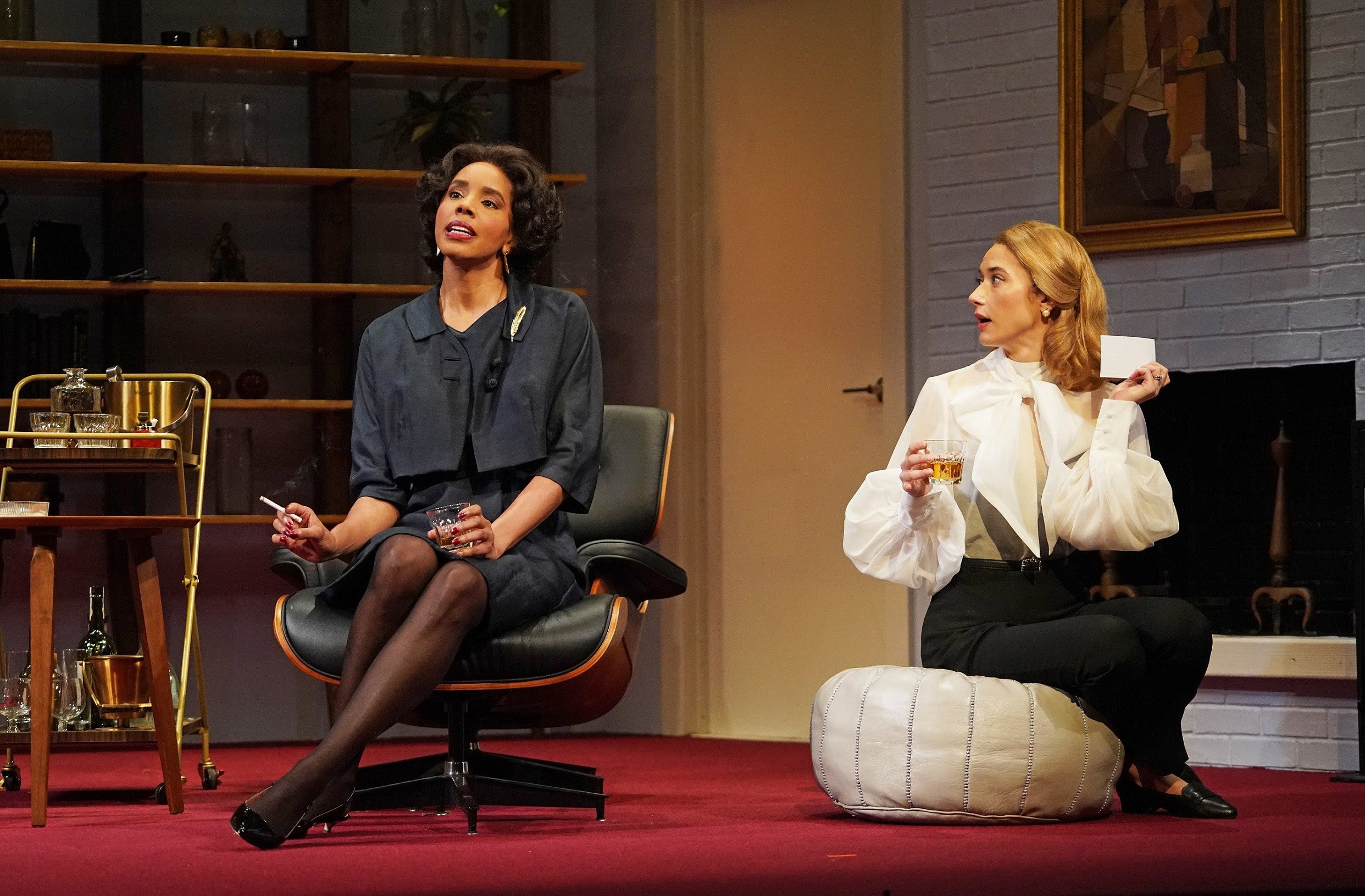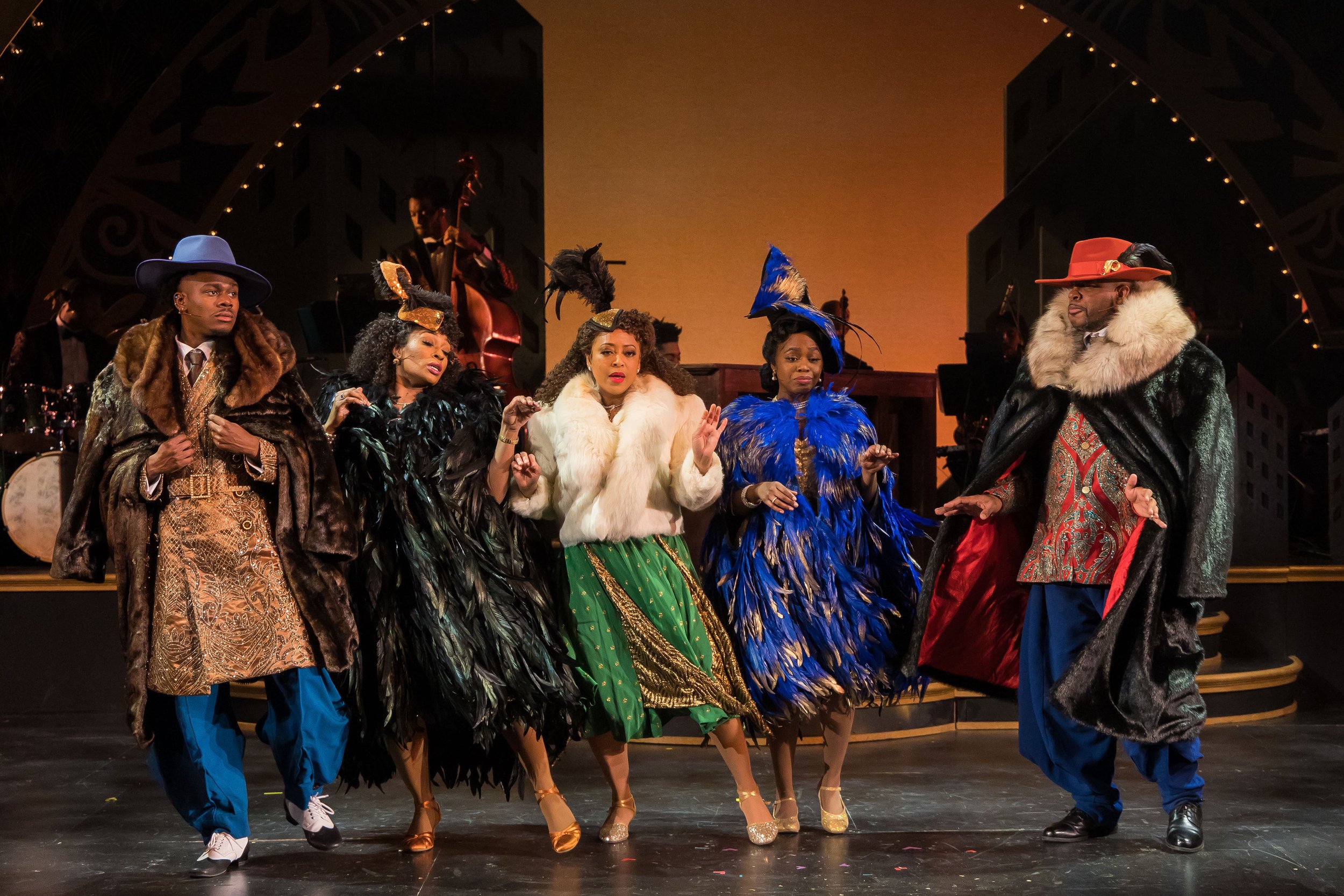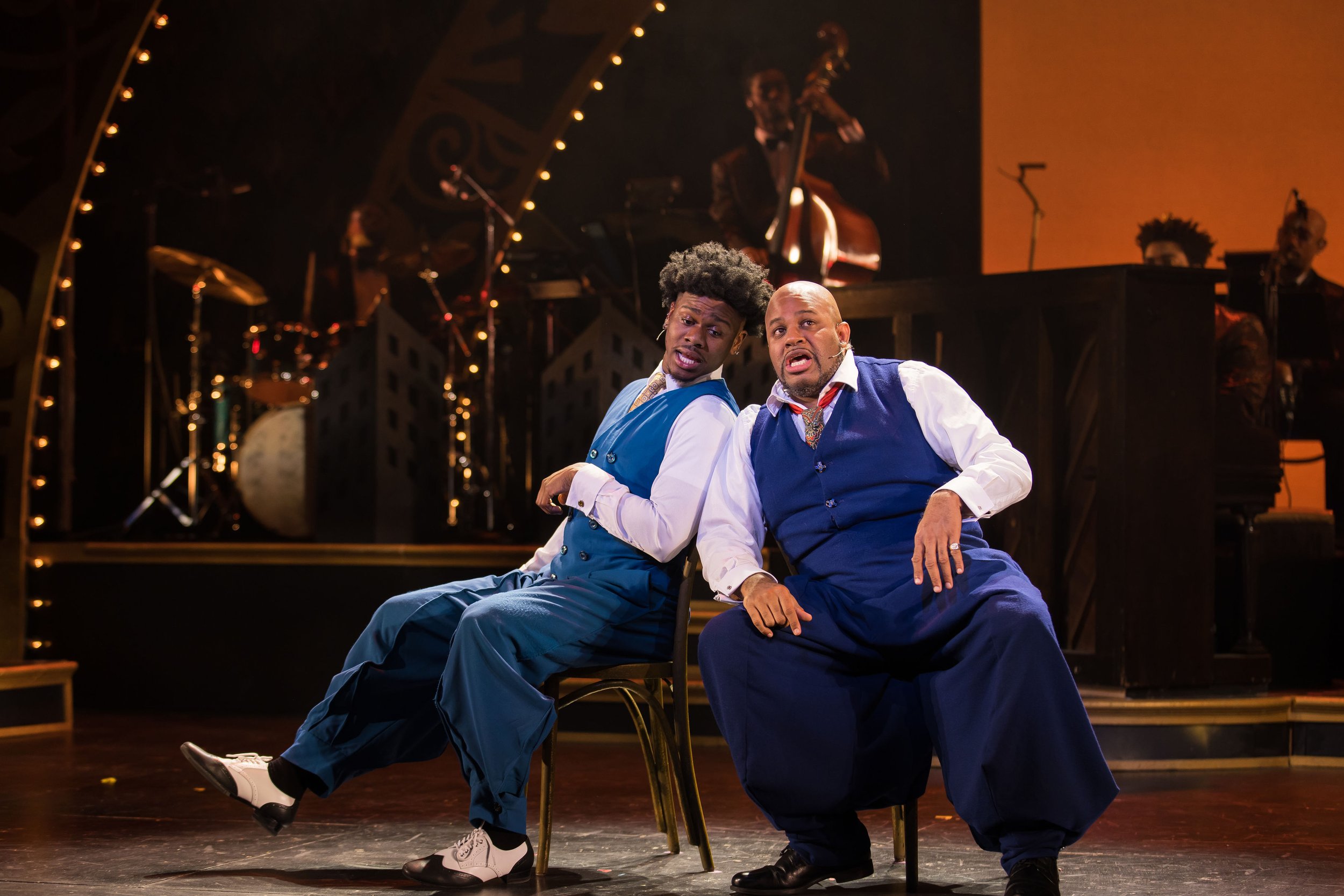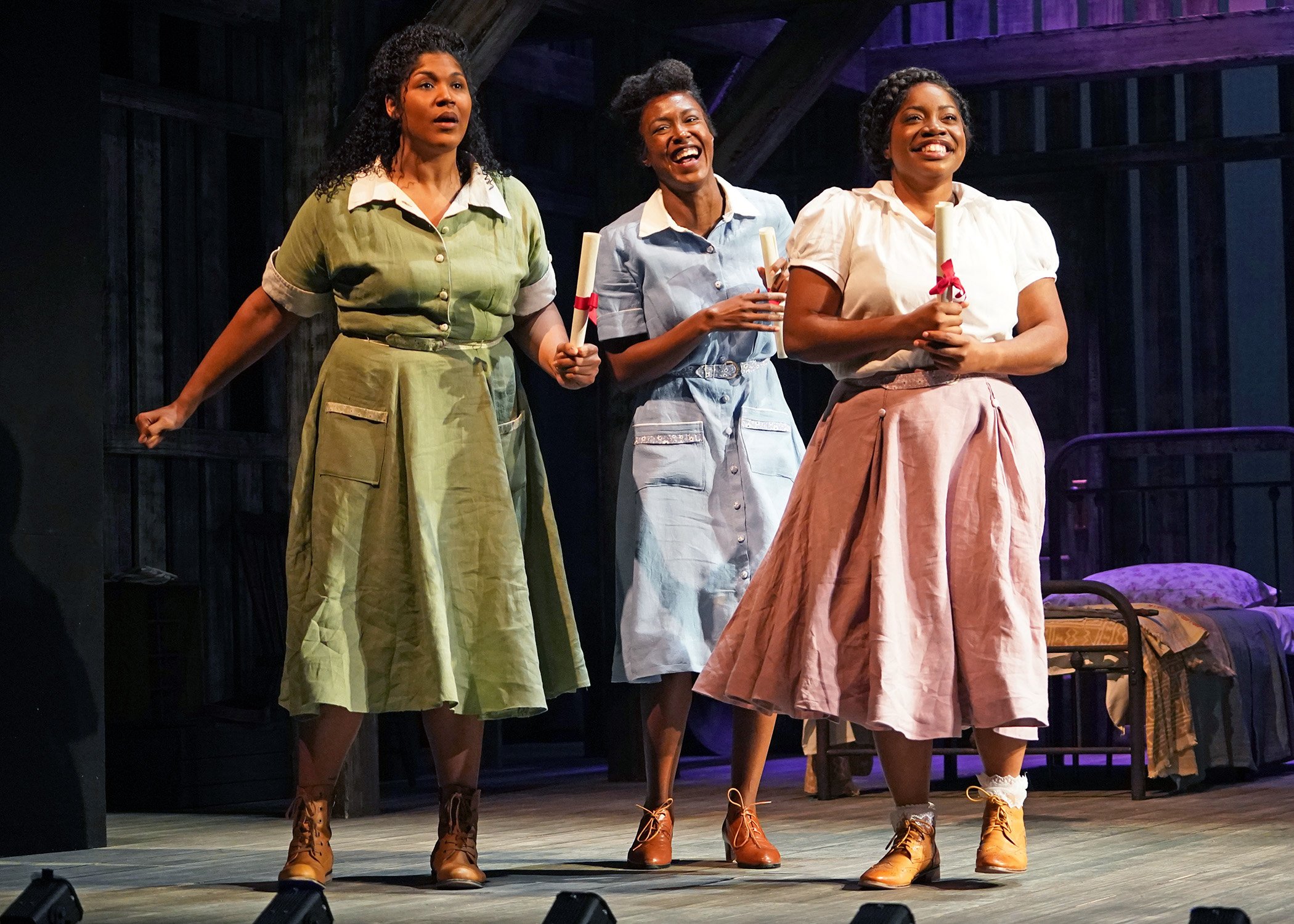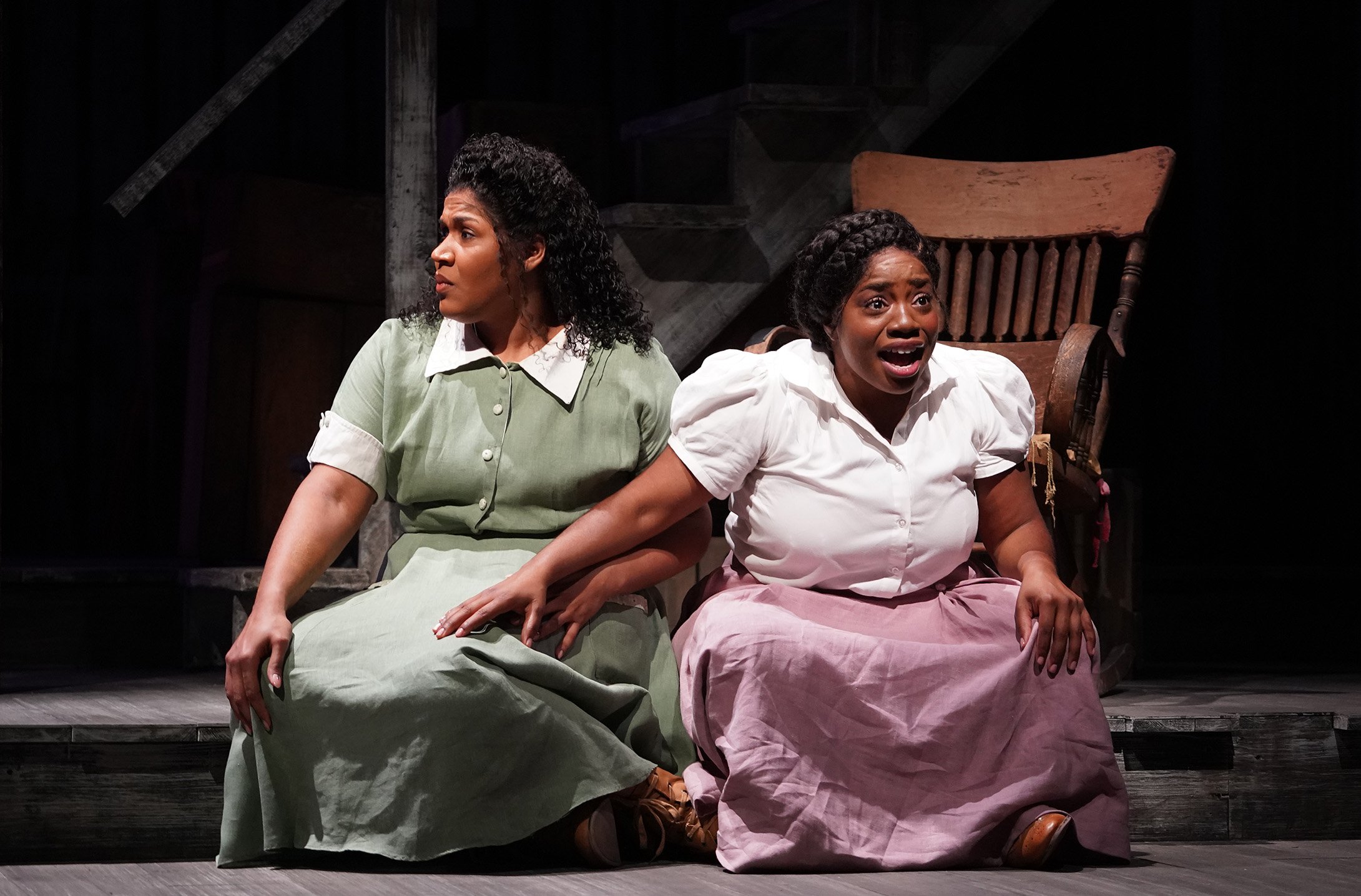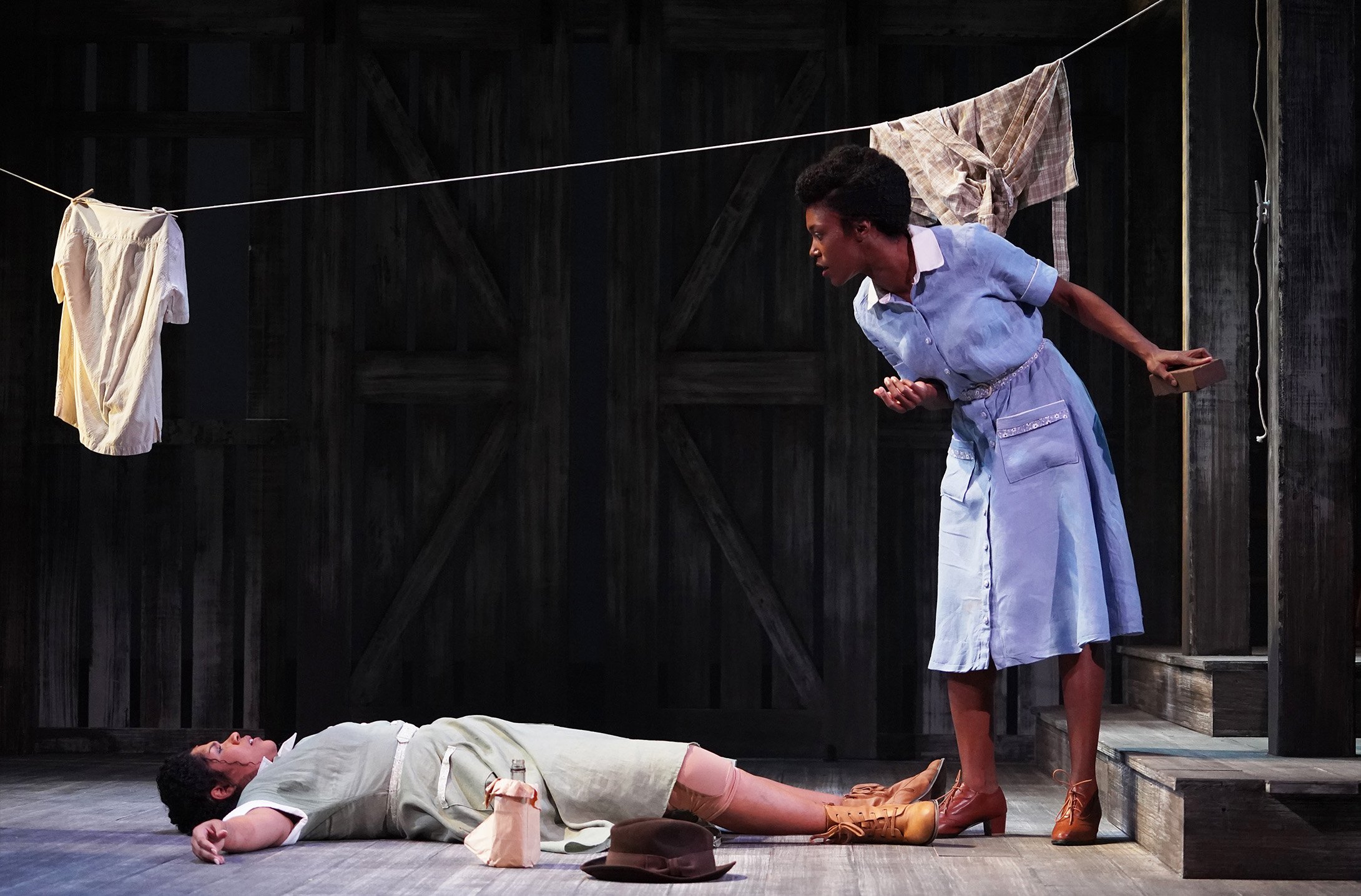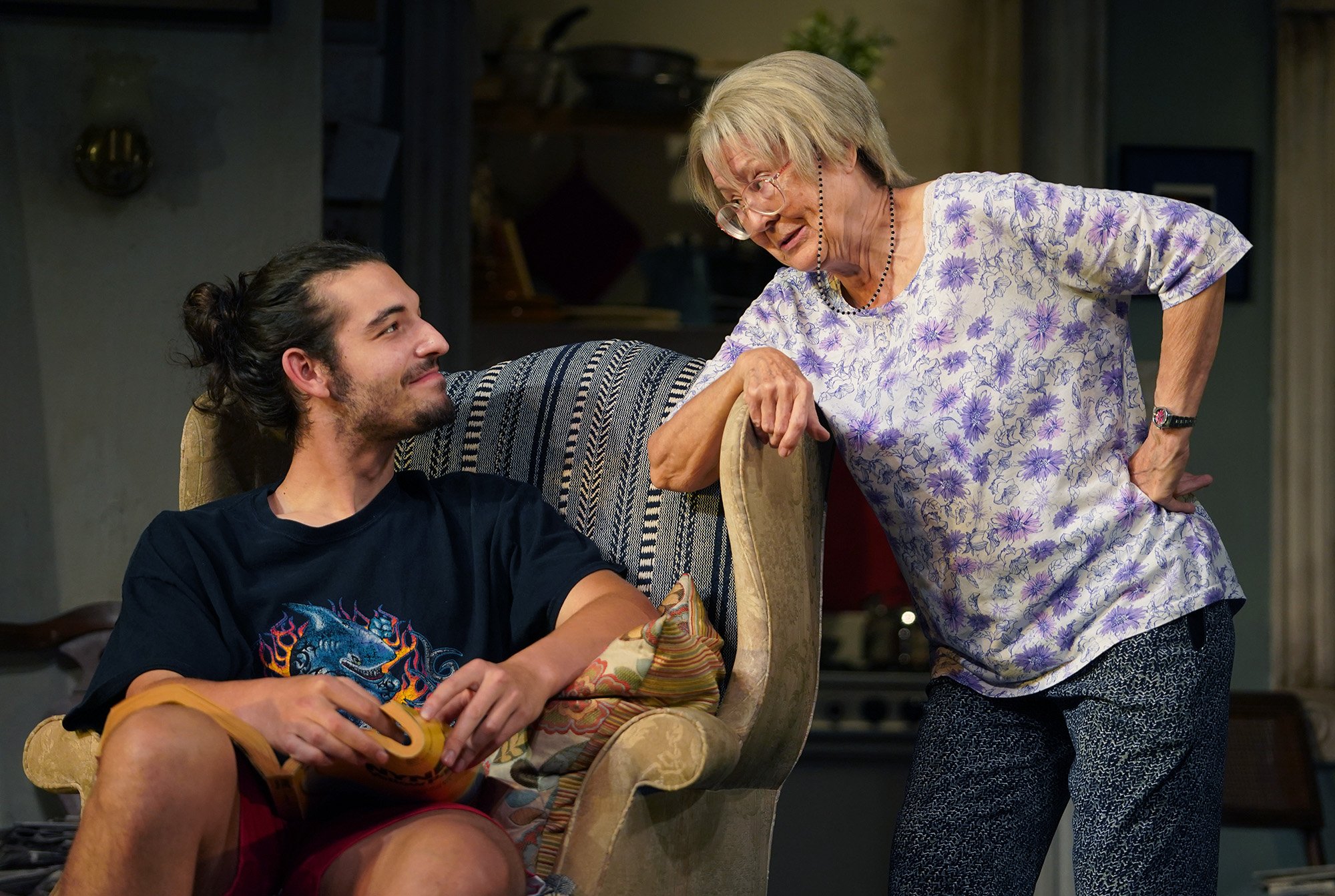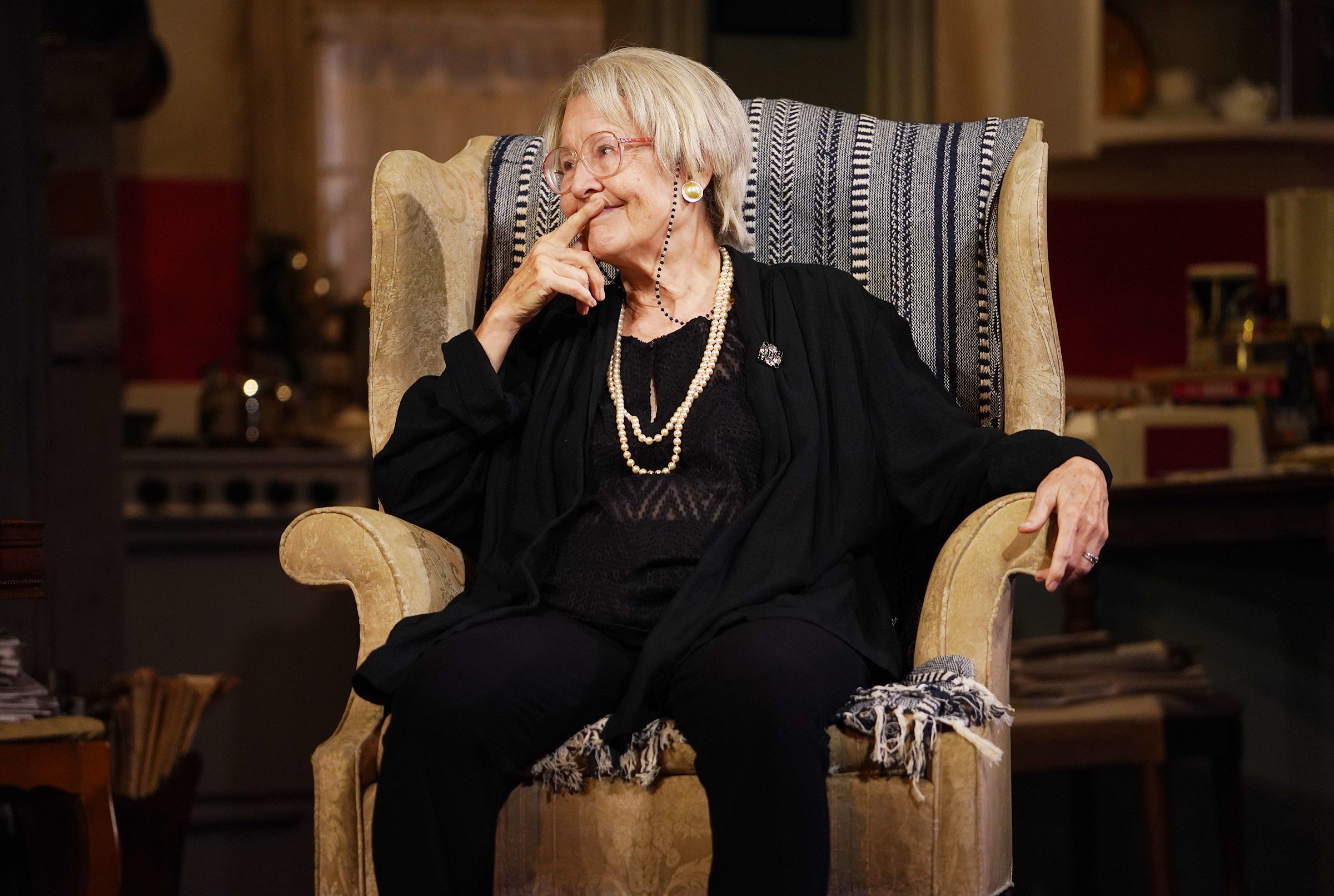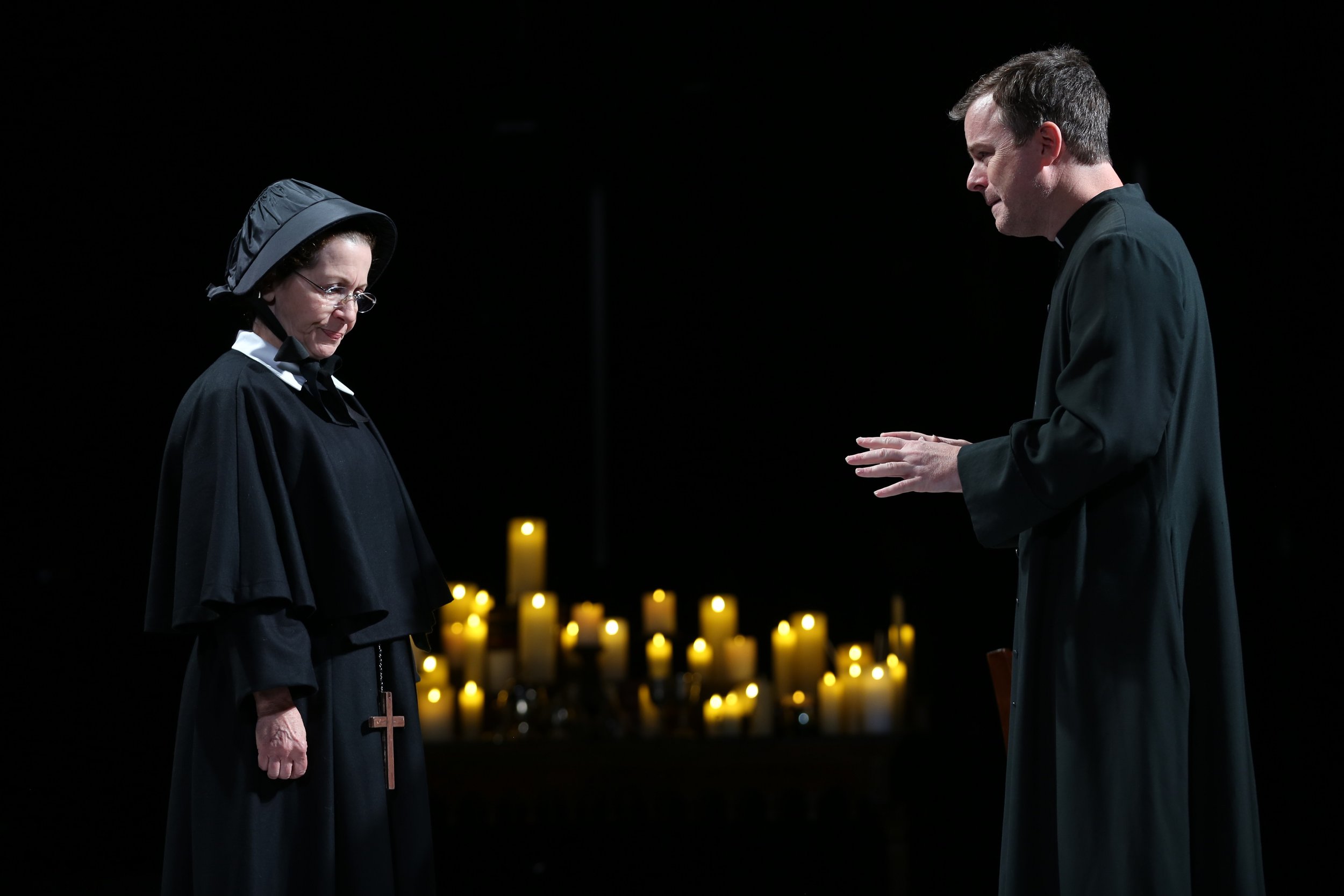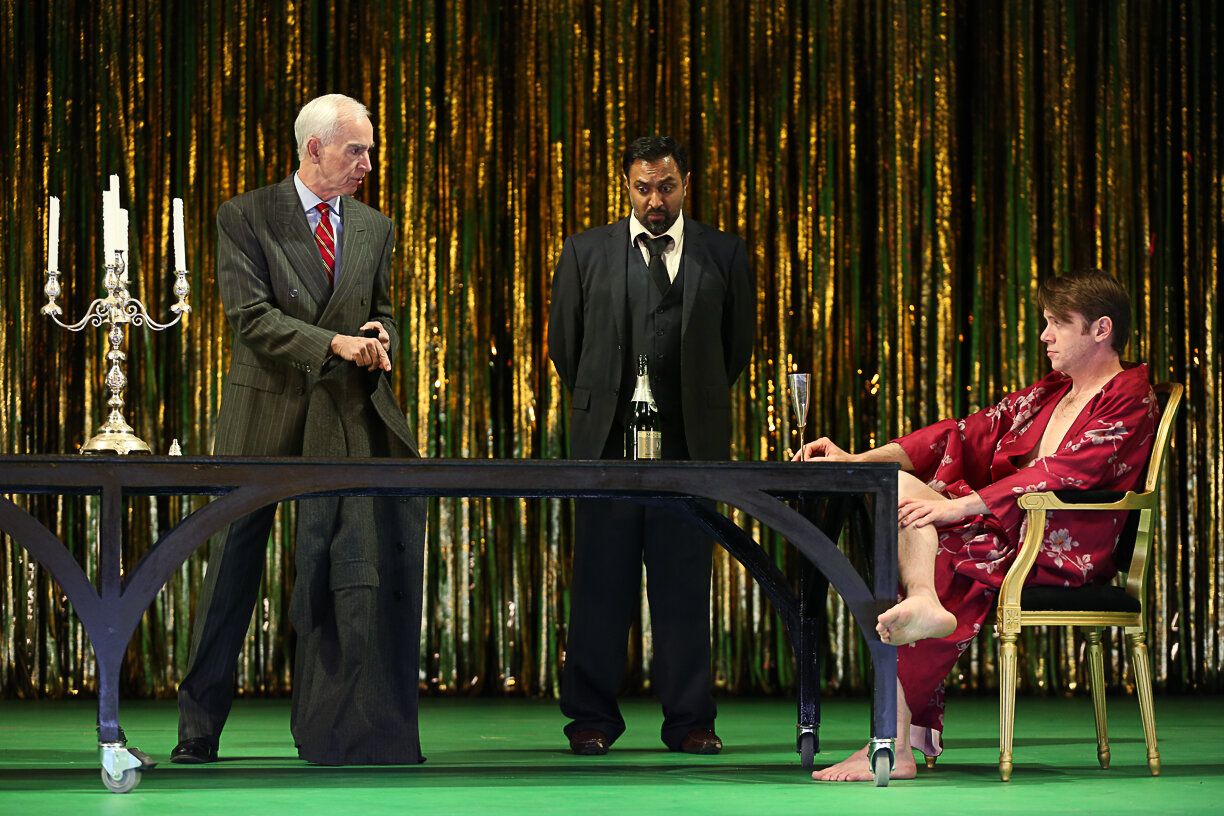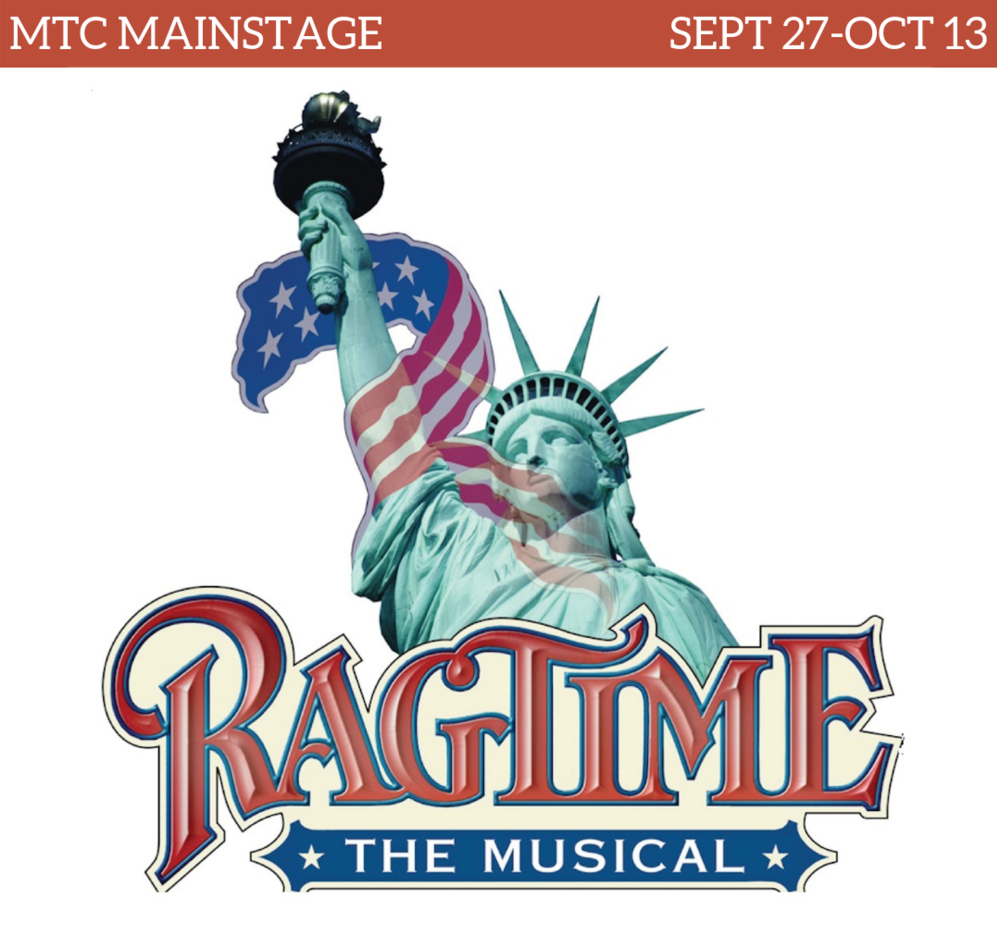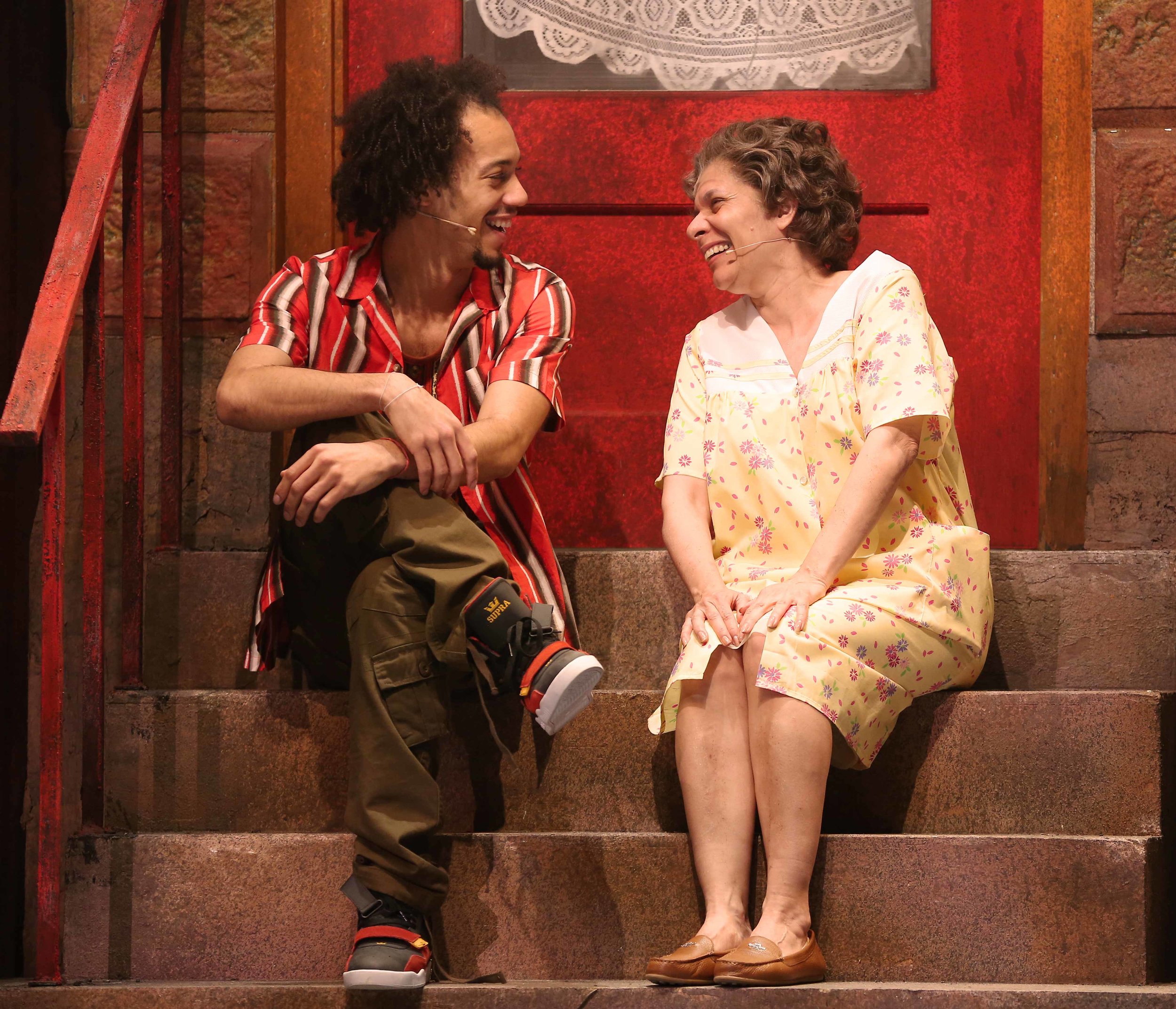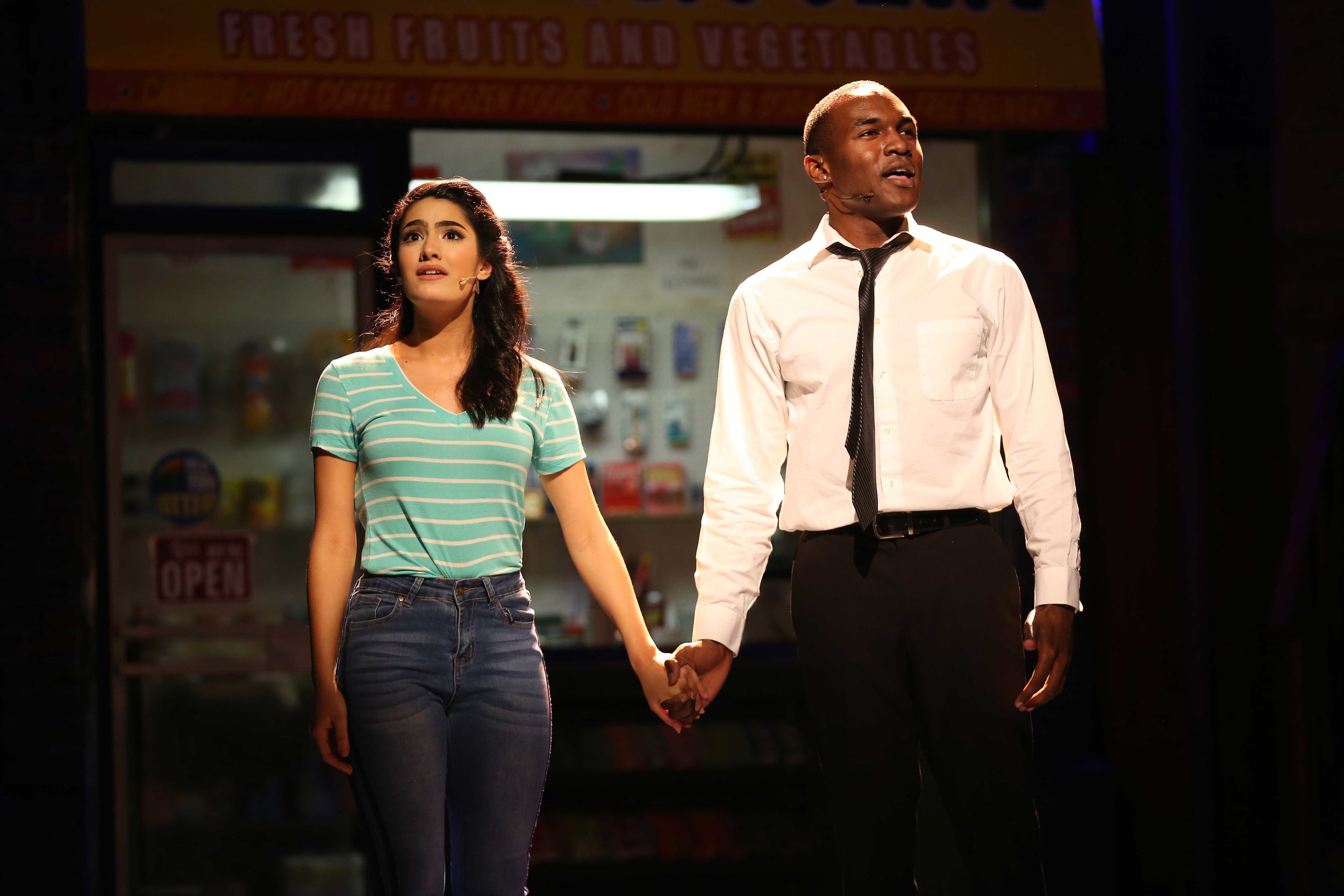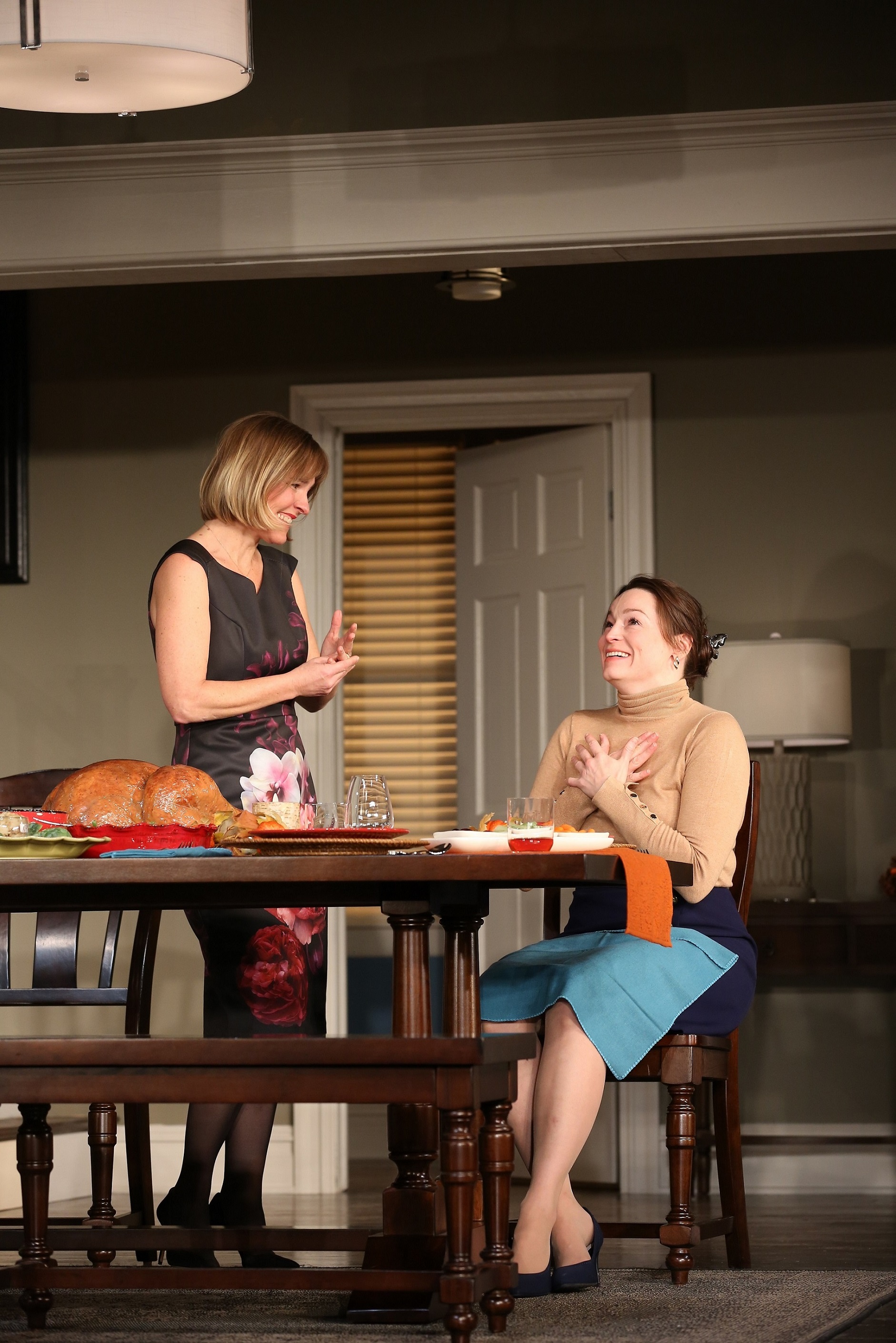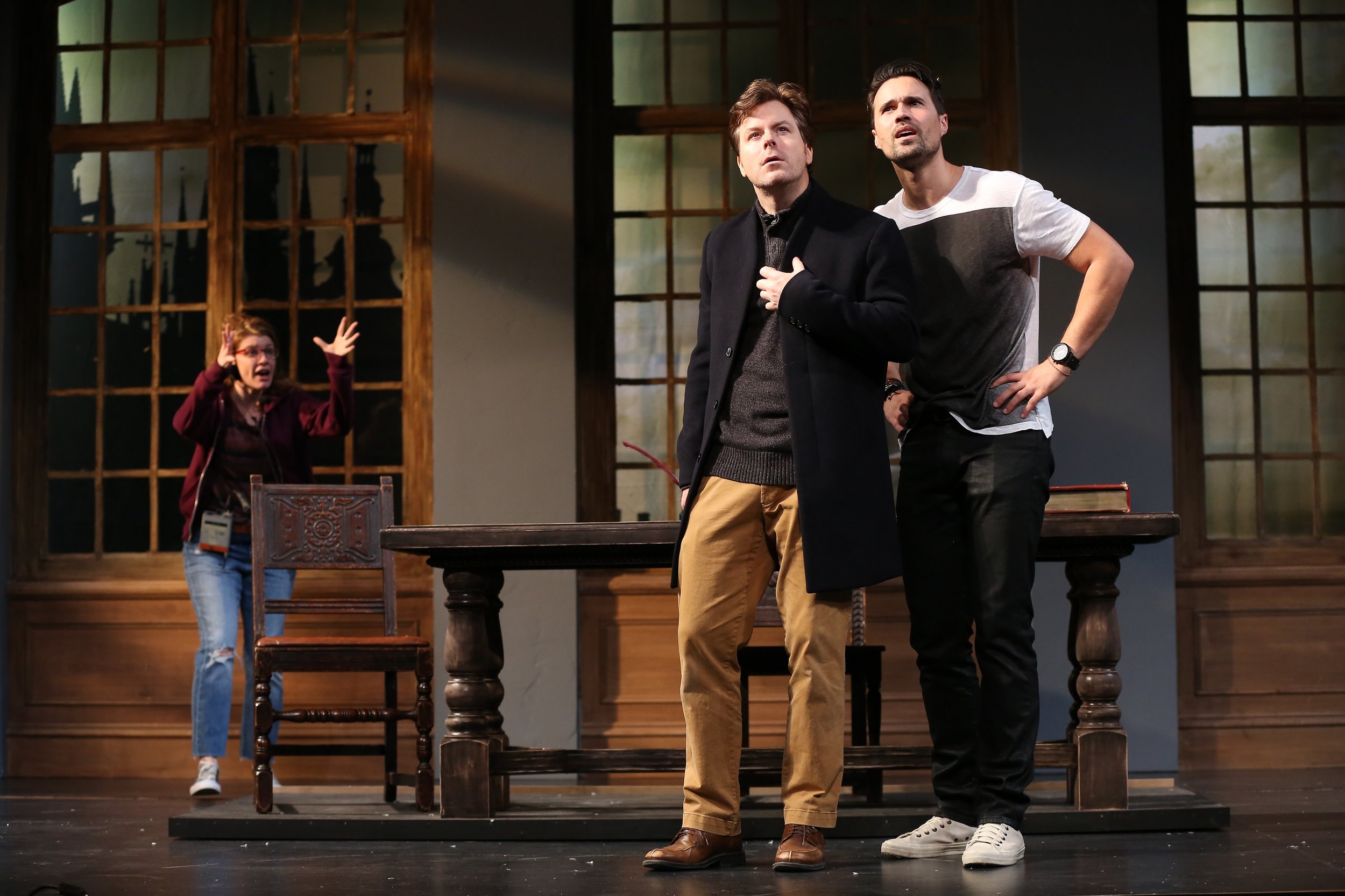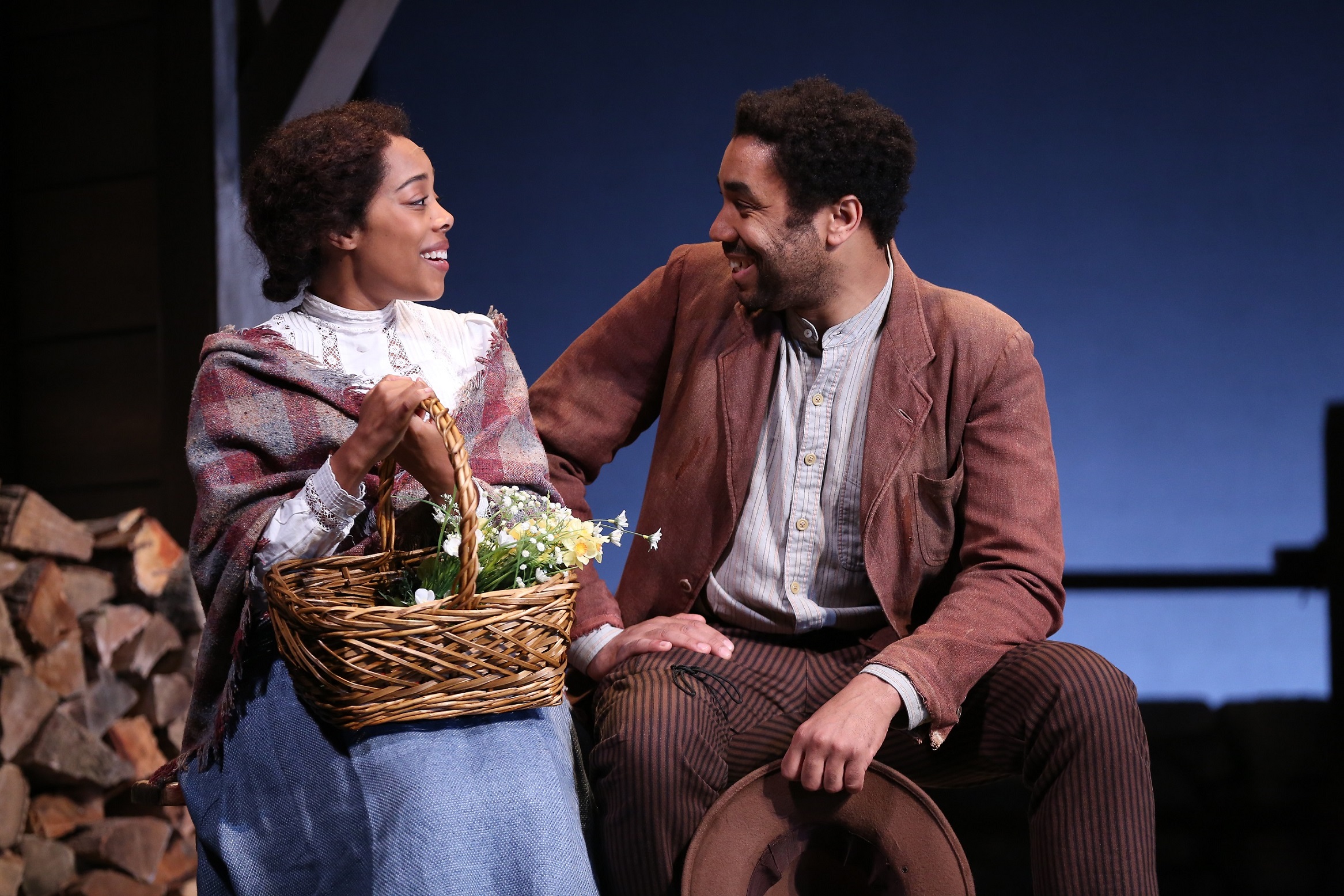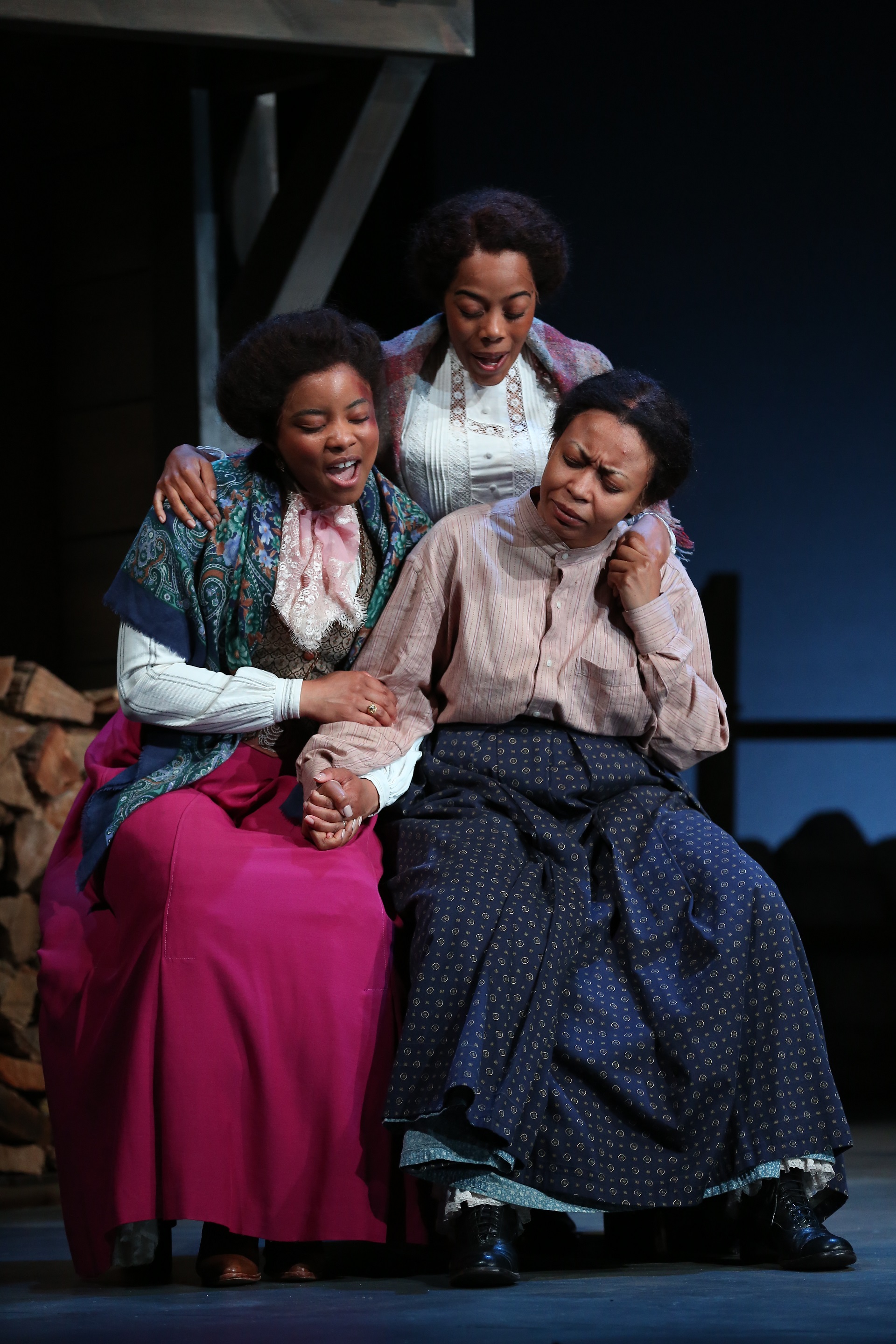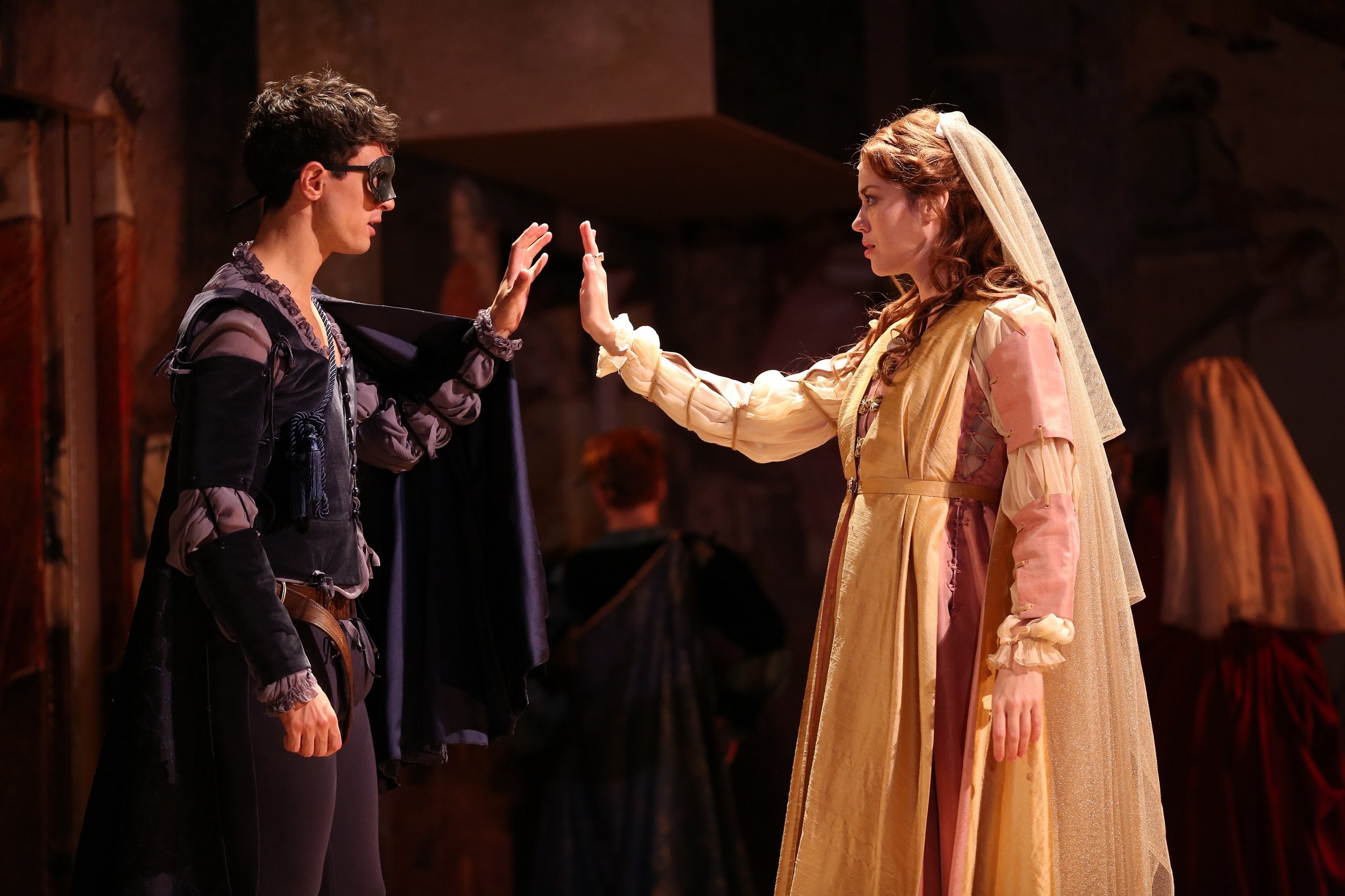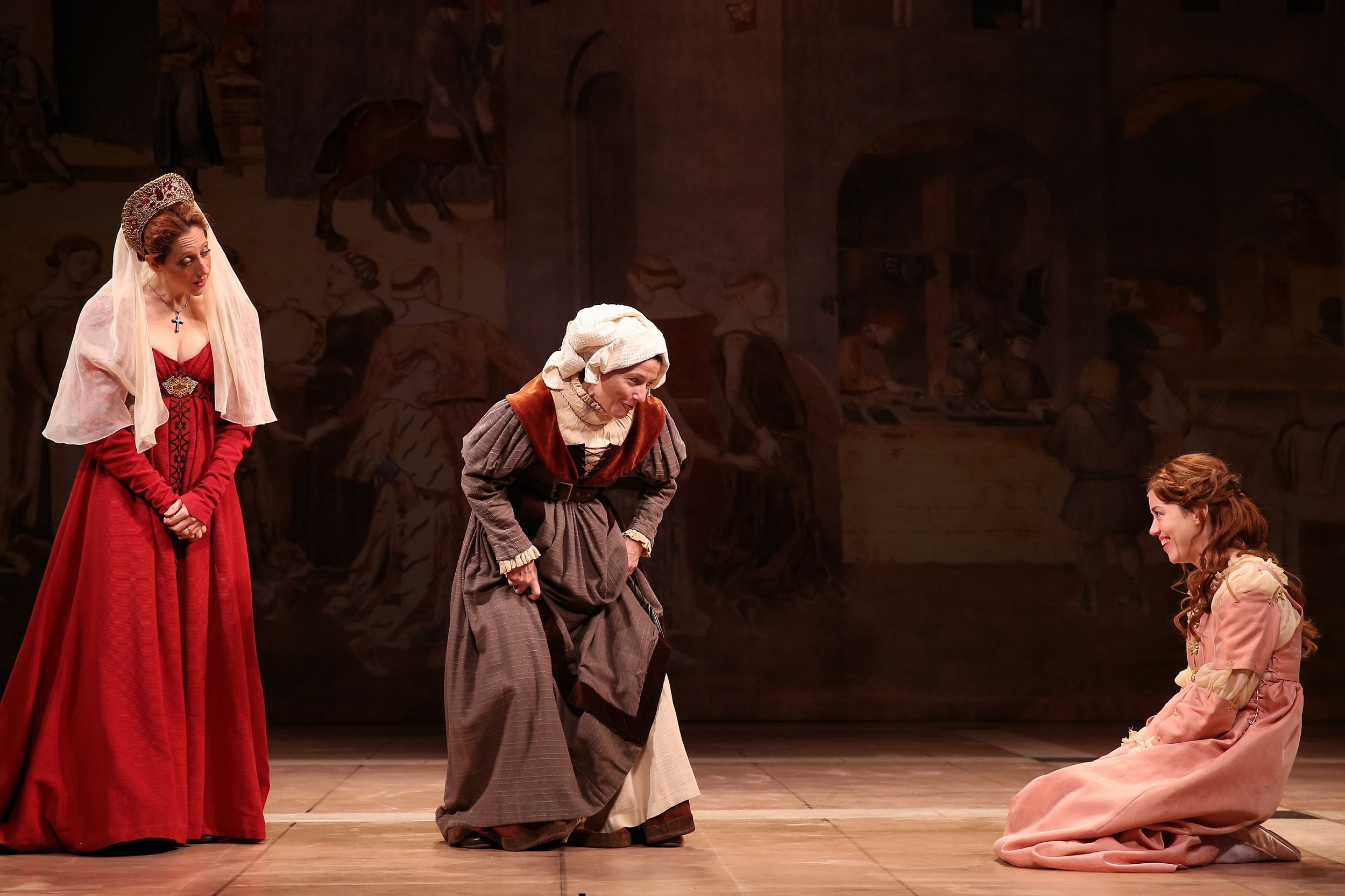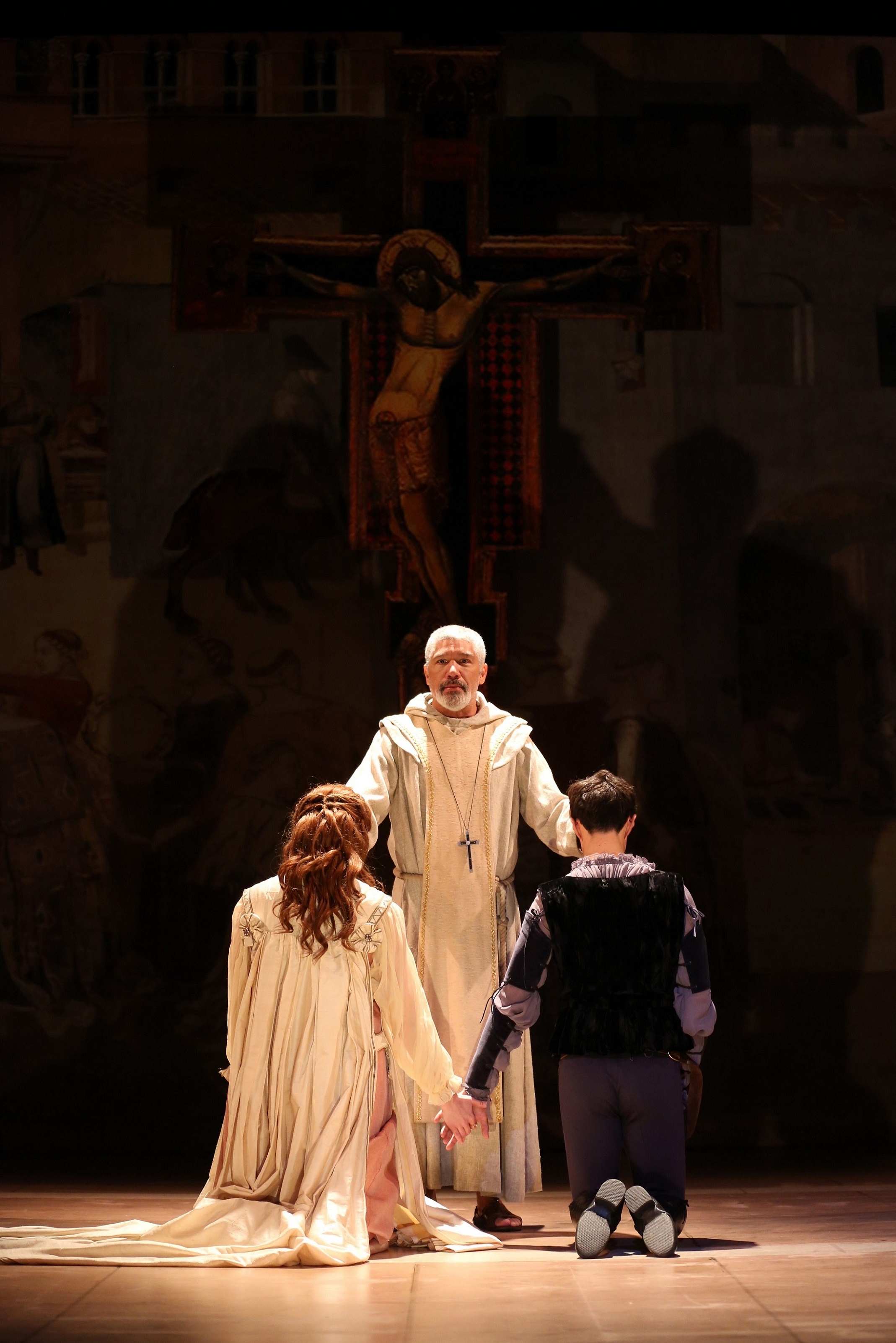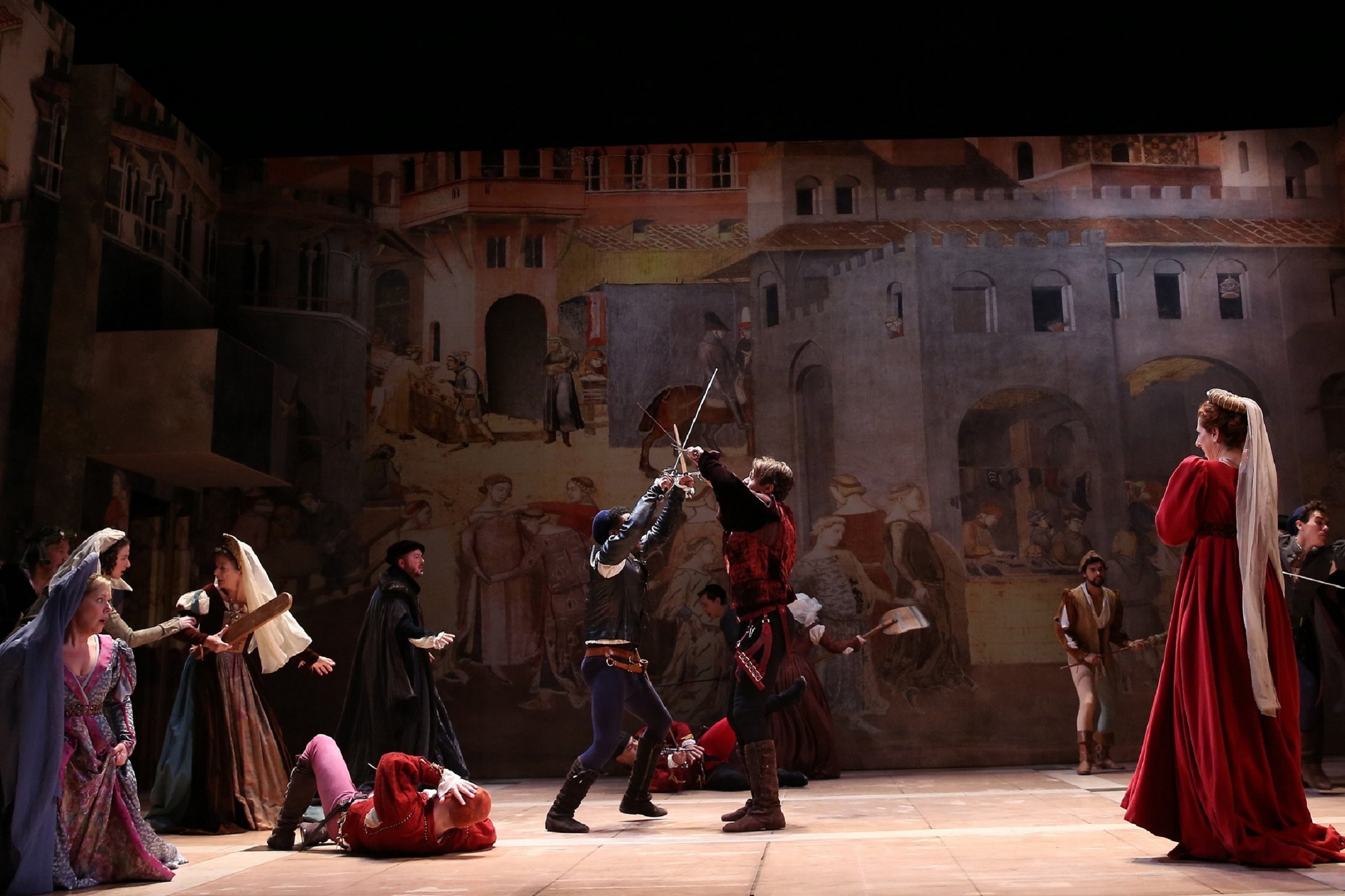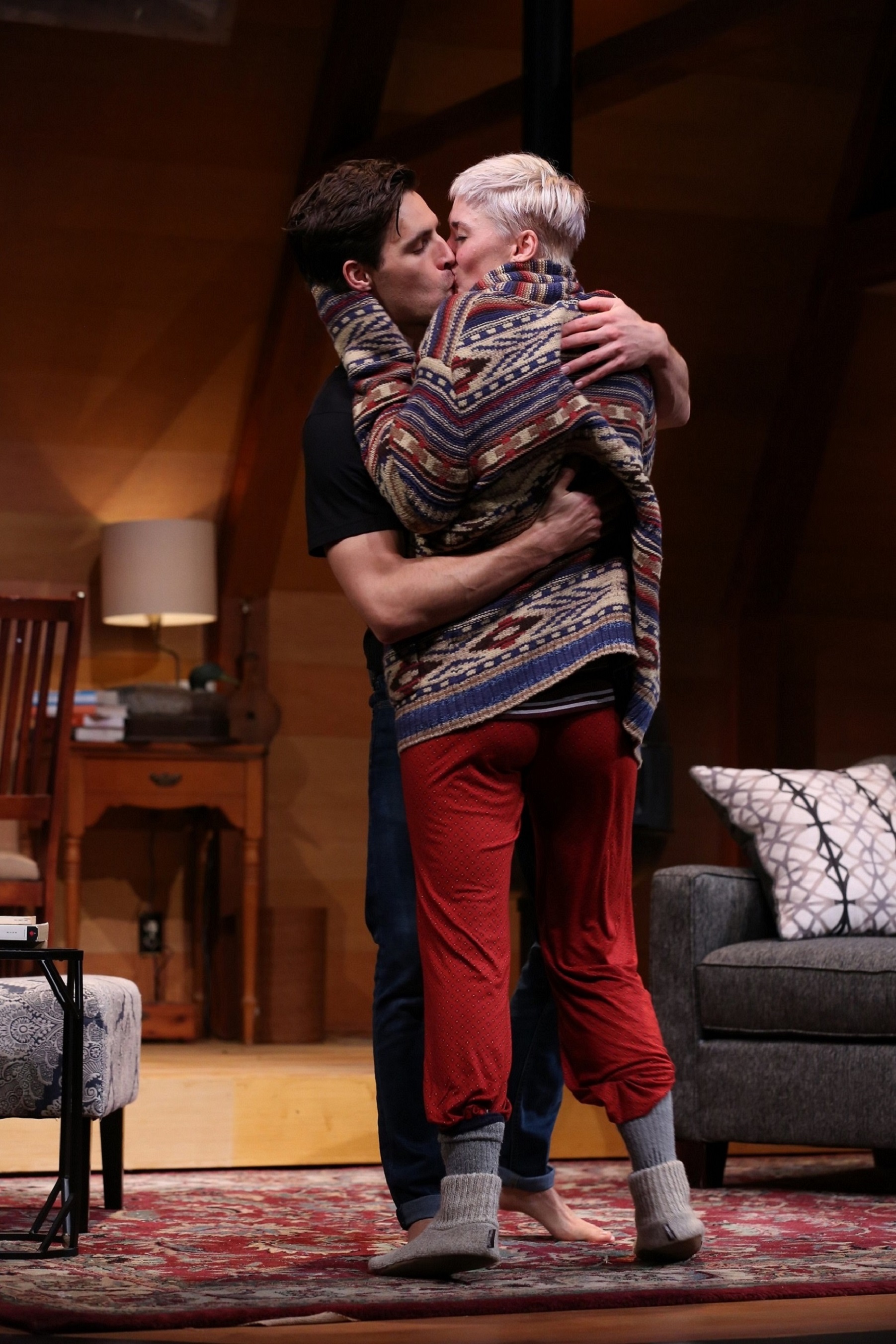Review of Dial M for Murder, Westport Country Playhouse
Mark Lamos’s final production as Artistic Director at Westport Country Playhouse aims to be a crowd-pleaser. As such, it’s a rich example of what WCP has done well under his direction. Dial M for Murder is an old-fashioned play—as written by Frederick Knott and adapted famously into a 1954 film with Grace Kelly, directed by Alfred Hitchcock—that’s been recently revamped by Jeffrey Hatcher so that it’s alternately tense and entertaining and always smart. And “smart” is what Alexander Dodge’s set—a fifties Maida Vale setting—and Fabian Fidel Aguilar’s costumes are as well. So what we’re looking at—especially with Emma Deane’s choice lighting effects—is always a treat for the eyes. The dialogue, though it doesn’t always sparkle (and having to sound somewhat British tends to make some deliveries a trifle stilted), is full of little flourishes that let us revel in the fact that everyone in the play, at some point, is trying to take someone in. The levels of betrayal on view, with plenty of recriminations and incriminations, make for a lovely evening of seeing who’s worse than whom.
Margot (Kate Abbruzzese), Maxine (Krystel Lucas), Tony (Patrick Andrews), Inspector Hubbard (Kate Burton) in Dial M for Murder at Westport Country Playhouse, directed by Mark Lamos (photo by Carol Rosegg)
Which is to say that it’s not really a murder mystery—in the sense of a whodunit—but rather a “what happens next”? and “can they get away with it”? Plotted gracefully and unfolding like a classic game of cat and mouse, Dial M for Murder takes us back to theater that has no great ax to grind nor points to make. Like the "thriller genre” that author Maxine (Krystel Lucas) earns her bread writing and Tony Wendice (Patrick Andrews), husband of her friend Margot Wendice (Kate Abbruzzese), earns his promoting, the play insists that people killing other people is always interesting, at least, and may sometimes involve various motives (we’re told there are five key motives for murder), sundry complications, and who knows what sort of surprises, pleasant and unpleasant.
Someone has info about Margot that she’d rather Tony not know, but will she pay to get it back—it’s a letter that exposes facts about Margot and Maxine and so would topple the arranged world of the well-off Wendices (it’s Margot’s money), to say nothing of Tony and Maxine’s professional standing. Further complication arrives when a person from Tony’s past is enlisted to do away with Margot in an overly ingenious plan that could go wrong any number of ways. Of course it does but I won’t say just how and then the question becomes what happens next . . . and will they get away with it?
Margot Wendice (Kate Abbruzzese) in Dial M for Murder at Westport Country Playhouse, directed by Mark Lamos (photo by Carol Rosegg)
Sprawling across two Acts (each under an hour), Hatcher’s Dial M works like a well-oiled machine, one that’s been remodeled in ways that should appeal to modern audiences. Indeed, it’s hard to overlook the switch in sexual politics: in the original, Margot is almost a “fall gal” and the ease with which she’s made out to be a villain is surprising, but for the fact that as a woman in the Fifties she has little voice or status when the males—Tony and the writer (male originally)—seem to team up against her along with the male inspector. In Hatcher’s version, only Tony and his former schoolmate, a ne’er-do-well now known as Lesgate (Denver Milord, grand as blandly malevolent and agreeably unpredictable) are male; the three women unite, sort of, in trying to snare the perpetrator in their complex web of timing and switched latch keys, and the way he tries to match their machinations is most of the fun.
Lesgate (Denver Milord), Tony Wendice (Patrick Andrews) in Dial M for Murder at Westport Country Playhouse, directed by Mark Lamos (photo by Carol Rosegg)
As Tony, Patrick Andrews has a wonderful jauntiness and a coldly calculating air that is both winning and chilling. He has a practiced way of breaking the fourth wall ever so slightly, clueing us into his inner workings with a look or a gesture that is only for us to read. As Inspector Hubbard, Kate Burton follows suit, somewhat, pointing us to places where alibis and evidence don’t add up. Kate Abbruzzese’s Margot emotes high stress, puts up with a lot, and comes out looking great and ready to address the matter at hand with convincing aplomb—one senses Tony is no match for her at all but she mostly lies low so he won’t notice, until it’s too late? The one note in the cast I question is Krystel Lucas’ Maxine: twice Margot, no fool, suggests—even if only teasing—that she suspects Maxine might be the one trying to blackmail her or even trying to have her killed. If there’s to be any force behind the suggestion, Maxine should seem at least potentially malevolent or mercurial enough to make us believe anything. As played, Lucas’s Maxine seems very upright and the person most likely to save the day.
Maxine (Krystel Lucas), Margot (Kate Abbruzzese) in Dial M for Murder at Westport Country Playhouse, directed by Mark Lamos (photo by Carol Rosegg)
A minor point perhaps, and the only wrinkle I observed in this silky smooth production, full of murderous charm and an arch acceptance of that line that used to haunt us on the old “Inner Sanctum” film series: “Yes, even you could commit . . . MURDER!” All it takes is motive and opportunity, seemingly.
And now you should have motive enough to take this opportunity to see long-serving and much admired theater artist Mark Lamos’ final production as Artistic Director of Westport Country Playhouse.
Dial M for Murder
Adapted by Jeffrey Hatcher
From the Original by Frederick Knott
Directed by Mark Lamos
Scenic Design: Alexander Dodge; Costume Design: Fabian Fidel Aguilar; Lighting Design: Emma Deane; Sound Design: Kate Marvin; Wig, Hair & Make-Up Design: J. Jared Janas; Fight Director/Intimacy Coach: Michael Rossmy; Dialect Coach: Shane Ann Younts; Props Supervisor: Sean Sanford; Production Stage Manager: Matthew Melchiorre; Assistant Stage Manager: Kevin Jinghong Zhu
Cast: Kate Abbruzzese, Patrick Andrews, Kate Burton, Krystel Lucas, Denver Milord
Westport Country Playhouse
July 11-30, 2023
